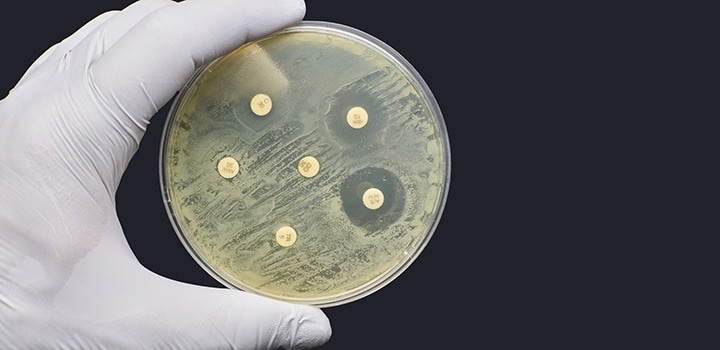An international research team has released important new information about what causes the emergence and spread of genes involved in antimicrobial resistance (AMR) in bacteria.

Image Credit: Getty Images
The project, carried out by scientists from the Quadram Institute and the University of East Anglia, brought together researchers from France, Canada, Germany, and the United Kingdom and will offer fresh insights to tackle the global threat of AMR.
The scientists discovered that distinct types of AMR genes had various temporal dynamics by studying the entire genome sequences of roughly two thousand resistant bacteria, mostly E. coli (Escherichia coli) acquired between 2008 and 2016.
Some, for instance, were discovered in North America and spread to Europe, whilst others spread from Europe to North America.
The research evaluated bacteria from several geographic regions as well as diverse hosts such as humans, animals, food (meat), and the environment (wastewater) to determine how these distinct but linked elements influenced the development and transmission of AMR.
By assembling such a large and diverse collection of genomes, we were able to identify the key genes conferring resistance to these critically important drugs. Understanding the mechanisms of transmission is key to the design of interventions to reduce the spread of antimicrobial resistance.”
Alison Mather, Professor and Group Leader, Quadram Institute
Alison Mather is also an honorary professor at UEA’s Norwich Medical School.
“Antimicrobial resistance is a global problem, and it is only by working collaboratively with partners in multiple countries that we can get a holistic understanding of where and how AMR is spreading,” states Lead author Dr Roxana Zamudio.
Identifying this interconnection is crucial to understanding transmission dynamics and the processes through which resistance genes are spread.
The research was supported by the Joint Programming Initiative on Antimicrobial Resistance (JPIAMR), a global initiative comprised of 29 countries and the European Commission tasked with combating AMR.
AMR will surely increase the vulnerability of millions of people to diseases caused by bacteria and other microorganisms that can currently be treated with antimicrobials if global measures are not made to combat it.
The researchers concentrated on resistance to a specific class of antimicrobials known as extended-spectrum cephalosporins (ESCs).
The World Health Organization has classified these antimicrobials as crucial since they constitute a “last resort” treatment for multidrug resistant bacteria. Despite this, efficiency has deteriorated since their debut since bacteria have evolved resistance.
Realizing AMR transmission and the global spread of resistance requires an understanding of the transfer of genetic information within and across bacterial populations.
This understanding will help to design critical treatments that can prevent AMR in the real world, where bacteria from various hosts and environmental niches encounter, and where international travel and trade imply that these interactions are not geographically confined.
Source:
Journal reference:
Zamudio, R., et al. (2022) Dynamics of extended-spectrum cephalosporin resistance genes in Escherichia coli from Europe and North America. Nature Communications. doi.org/10.1038/s41467-022-34970-7.